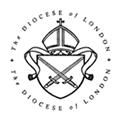History, mission and ministry
Introduction
The contemporary relationship between the public and ‘history’ is in some ways unclear. On the one hand, it seems that there is an unprecedented popular interest in history. There is a steady stream of television programmes (for example, the BBC’s Who do you think you are?) as well as entire channels devoted to popular history; ‘celebrity’ historians like Simon Schama, David Starkey and Niall Ferguson are regarded by some as household names; and historical literature, both factual and fictional, is widely read. However, on the other hand, as fascinating as history might be on its own terms, history cannot quite escape a reputation for being of little public value or contemporary relevance. This is partly the fault of historians, who sometimes have not adequately communicated this value and relevance. The question ‘who needs history?’ is still one that requires a response.
Within the Church of England there is often a sense of ambivalence about the history of the church. Clergy sometimes have a strong sense of history, and many have previously studied the subject at university. However, there is relatively little deliberate and critical engagement with history at a training and grassroots level. History has struggled to maintain its position in theological and ministerial education, and fields of enquiry such as congregational studies and practical theology rarely include an historical component. This stands in contrast to some other major institutions and organisations: for example, the British Army, where modern military history forms a key part of the curriculum for officers.
However, there is a growing wider feeling that history has significant public value; and that if historical research is purposefully presented, it can inform decision making, contemporary debates and self-understanding. The Building on History project team have made the case that the life and identity of every diocese, deanery and parish is bound up with its history. In the words of Archbishop Rowan Williams in a project podcast: ‘We often take for granted that things have always been like this. But actually, of course, to understand the past is to understand how things change’.
History can provide valuable context and practical wisdom for informing the contemporary mission and ministry of the church. For church leaders, historical awareness might build confidence, give inspiration, challenge assumptions, teach lessons, constructively caution and provide both a sense of proportion and perspective, as well as preventing the repeat of past mistakes. A shared consciousness of history in the church has the potential to contribute to the meaningful formation of identity and the effective building of community.
The following snapshots from the project highlight the practical value for the church in engaging with history today.
Go to:





